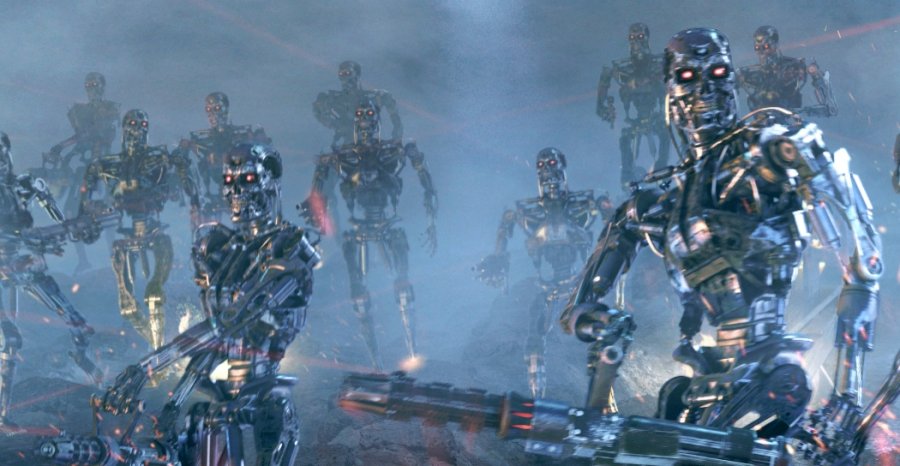
UN Convention Weighs Fears About Killer Robots

Get the world’s most fascinating discoveries delivered straight to your inbox.
You are now subscribed
Your newsletter sign-up was successful
Want to add more newsletters?

Delivered Daily
Daily Newsletter
Sign up for the latest discoveries, groundbreaking research and fascinating breakthroughs that impact you and the wider world direct to your inbox.

Once a week
Life's Little Mysteries
Feed your curiosity with an exclusive mystery every week, solved with science and delivered direct to your inbox before it's seen anywhere else.

Once a week
How It Works
Sign up to our free science & technology newsletter for your weekly fix of fascinating articles, quick quizzes, amazing images, and more

Delivered daily
Space.com Newsletter
Breaking space news, the latest updates on rocket launches, skywatching events and more!

Once a month
Watch This Space
Sign up to our monthly entertainment newsletter to keep up with all our coverage of the latest sci-fi and space movies, tv shows, games and books.

Once a week
Night Sky This Week
Discover this week's must-see night sky events, moon phases, and stunning astrophotos. Sign up for our skywatching newsletter and explore the universe with us!
Join the club
Get full access to premium articles, exclusive features and a growing list of member rewards.
The idea of humans answering to robot overlords is a concept that has often been joked about, but with drones and other robotic technologies advancing at such a rapid pace, the notion that humans could need protection from killer robots may be no laughing matter.
As such, governments are gathering this week for a four-day session to discuss how to prevent "lethal autonomous robots," reported AFP. The debate is part of the U.N. Convention on Conventional Weapons, which is being held in Geneva, Switzerland.
"Killer robots would threaten the most fundamental of rights and principles in international law," Steve Goose, arms division director at Human Rights Watch, an international non-governmental organization, told AFP. "We don't see how these inanimate machines could understand or respect the value of life, yet they would have the power to determine when to take it away."
Robotic weapons, such as armed drones, are already used around the world, but some military experts predict cutting-edge research could give rise to autonomous killer robots within 20 years, according to AFP.
"It's totally unconscionable that human beings think that it's OK to cede the power and life over other humans to machinery," said Jody Williams, a political activist and Nobel Peace Prize winner for her work to ban land mines, according to AFP. "If we don't inject a moral and ethical discussion into this, we won't control warfare."
Follow Denise Chow on Twitter @denisechow. Follow Live Science @livescience, Facebook & Google+.
Get the world’s most fascinating discoveries delivered straight to your inbox.

Denise Chow was the assistant managing editor at Live Science before moving to NBC News as a science reporter, where she focuses on general science and climate change. Before joining the Live Science team in 2013, she spent two years as a staff writer for Space.com, writing about rocket launches and covering NASA's final three space shuttle missions. A Canadian transplant, Denise has a bachelor's degree from the University of Toronto, and a master's degree in journalism from New York University.
 Live Science Plus
Live Science Plus










